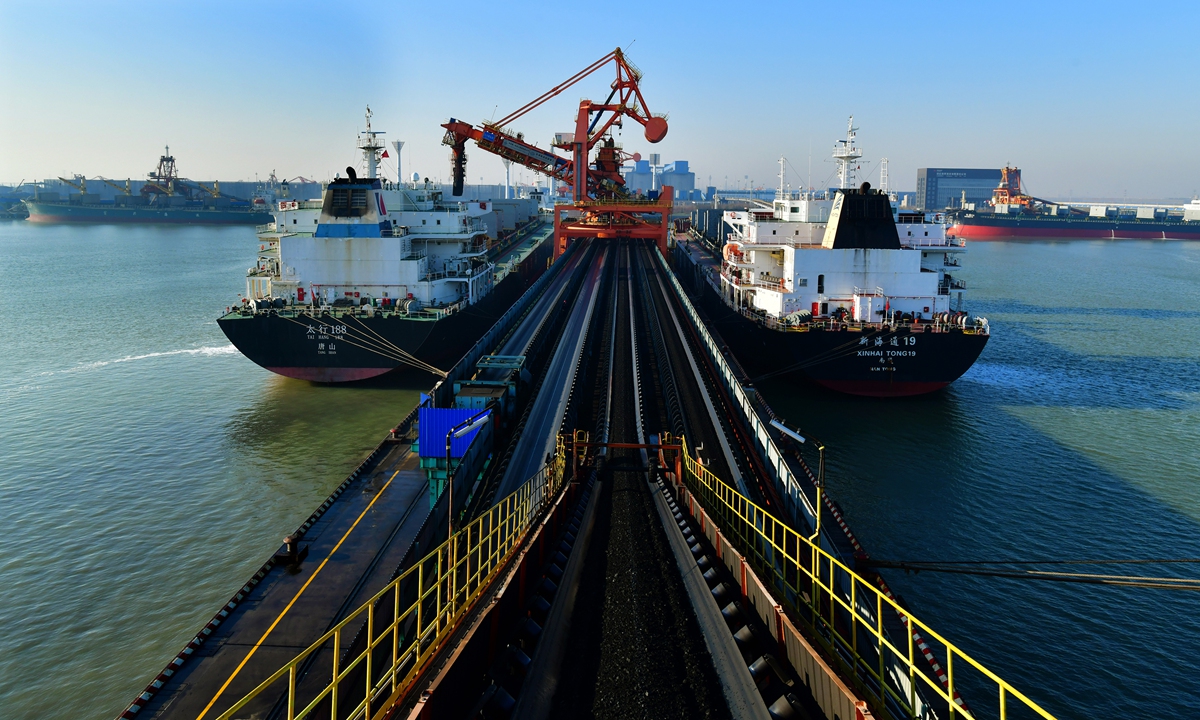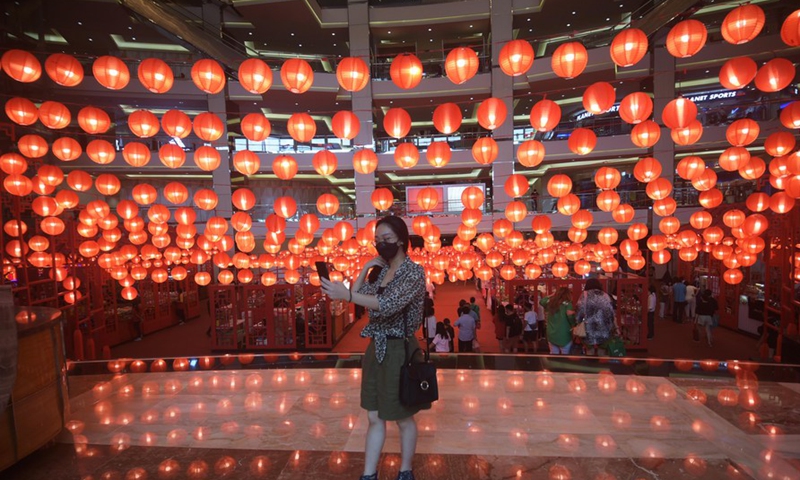
A vessel docks at Huanghua port, North China's Hebei Province to load coal in December 2021. Photo: cnsphoto
Premier Li Keqiang on Monday stressed speeding up rolling out supportive measures, ranging from tax cuts and special-purpose bond issuance to ensuring stable energy supply, in a bid to stabilize economic growth after a wave of COVID-19 resurgences and changes in the global and domestic situations added pressure and uncertainties to the domestic economy.
At a forum held with some local government officials on Monday, Li urged officials to "increase the sense of urgency" in speeding up the implementation of various policy measures, stressing that all localities and government departments should remain confident, while also be highly vigilant against unexpected challenges, rising downward pressure and resolutely respond to new challenges.
Rising challenges from COVID-19 as well as global tensions will put downward pressure on the pillars of China's economy, particularly investment and consumption, in the near term, but there is no danger to China's prospects of achieving its GDP growth target for the year of 2022, because of the country's abundant space for policy adjustment, analysts noted.
Chinese officials have been repeatedly warning of rising downward pressure. On Thursday, Li said during a forum held with experts and entrepreneurs that some "unforeseen factors" were out of expectations, which brought more uncertainties and challenges to stable economic operation.
Guan Tao, BOC International's global chief economist who also attended the forum, said that he got the impression that Premier Li had obtained information about some critical problems through various channels.
"Many problems have already been grasped by the senior leadership, and they are studying the roll-out of measures," he told the Global Times.
On Friday, Minister of Industry and Information Technology Xiao Yaqing also pointed out the difficulties faced by China's industrial economy, including logistics woes and high bulk commodity prices.
Chinese officials are paying more attention to the country's economic difficulties at a time that could be the most challenging period after early 2020, experts said.

A woman takes photos of red lanterns set for the upcoming Chinse Lunar New Year at a shopping mall in Jakarta, Indonesia, Jan. 26, 2022. (Photo: Xinhua)
Chen Jia, a research fellow with the International Monetary Institute of the Renmin University of China, told the Global Times that investment is an area that faces the "deepest challenges" from this round of coronavirus resurgence, because a reduction in private economic demand is causing certain leading companies to decrease investment, which leads to knock-on effects in upstream and downstream industries and adds pressure on investment from the public sector as well.
He noted that the consumption sector is directly affected by the epidemic, and although the consumer price index was better than expected in March, pressure will mount in the future.
Government officials have also been rolling out measures to stimulate economic growth. The Ministry of Culture and Tourism announced on Monday that domestic travel agencies can get deposits back temporarily or delay submitting fees.
On Sunday, China unveiled guidelines to accelerate the building of a unified national market, in a sweeping plan aimed at addressing longstanding issues within the economy, including local protection, and enhance China's economic security.
Premier Li also revealed that a number of measures that China will take, including stabilizing the prices of agricultural products, speeding up the process of tax reimbursement, and increasing the strength of support for consumption-related industries.
"The recent policy roll-out is meant to stabilize the economy under the coronavirus situation, but it is not rolled out just to tackle COVID-19 induced problems. The logic of those policies has been consistent, and authorities have been prepared for those policies for a long time," Chen told the Global Times.
He predicted that the government will follow up with a series of detailed measures to support economic growth that will take effect in the short term.
For example, the central bank might make interest rate and reserve requirement ratio cuts in the second quarter. China might also launch infrastructure projects soon that can benefit economic growth, Chen said.
Overall, experts remain confident that China can achieve its economic growth target of 5.5 percent for this year.
"China's space for policy adjustment is relatively big, and with the COVID-19 outbreaks coming gradually under control, consumption demand will hopefully speed up its recovery," Zhou Maohua, a macroeconomic analyst at Everbright Bank, told the Global Times on Monday.
Zhou said that signs have emerged that China's property investment should gradually stabilize and rebound in the second quarter.





